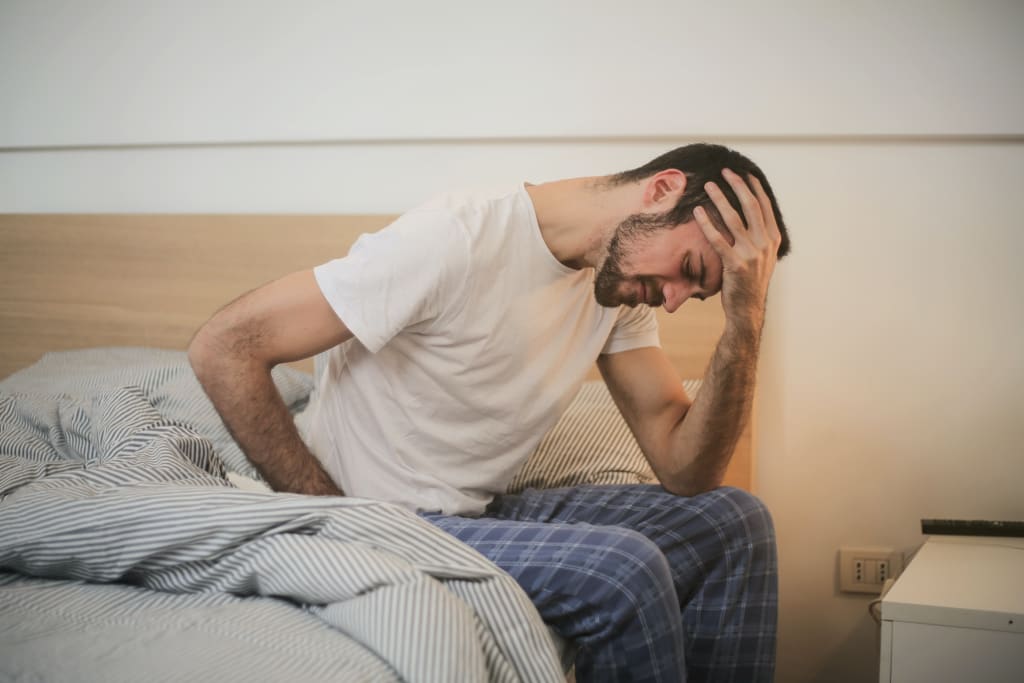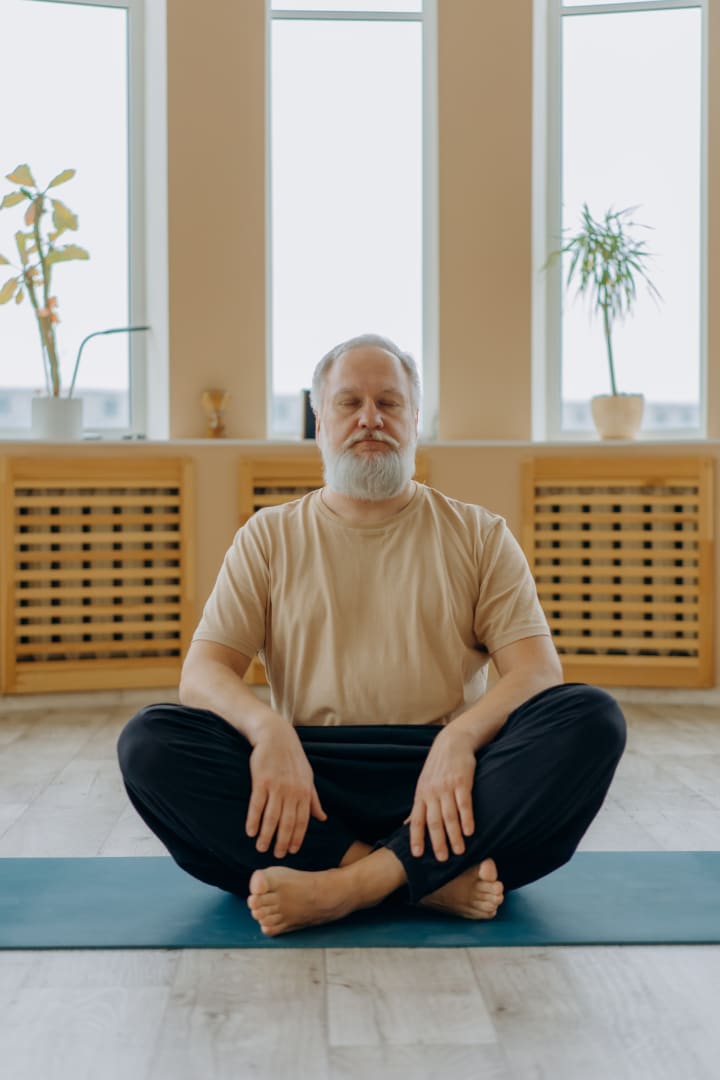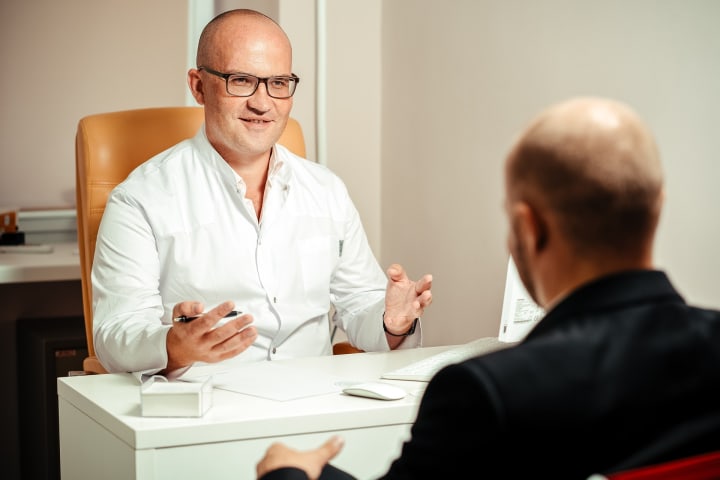Prostate issues?? Know how to deal with it..
Most men aged 50 plus are often troubled by enlarged prostate and its urinary symptoms. These simple tips help to tackle some of these symptoms effectively without further deterioration.

Men aged 50 or above often have to deal with prostate problems. The prostate that had dutifully functioned untill now begins to misbehave and opens up its pandora box. Often,with age,the prostate can undergo inflammation(prostatitis)or hypertrophy(overgrowth).This overgrowth can be cancerous(prostate cancer) or noncancerous (prostate enlargement).
Prostate enlargement, the most common prostate issue, gives a hell of a time for an unlucky one in 4 men aged 50 or more. Such men are likely to show signs and symptoms of lower urinary tract issues and most probably sexual issues too. Common signs and symptoms of enlarged prostate include:
• Frequent or urgent need to urinate
. Increased frequency of urination at night (nocturia) .
• Trouble initiating urination.
• Pain or burning urination
• Weak or scattered urine stream.
• Dribbling at the end of urination
• Urinary retention(bladder doesn't empty fully)
• Urinary incontinence (accidental loss of urine)
Less common signs and symptoms include:
• Urinary tract infection
• Inability to urinate
• Blood in the urine
• Painful ejaculation
• Frequent pain or stiffness in lower back, hips, pelvic or rectal area, or upper thighs.
The symptoms mostly stem from a blocked urethra (due to the enlarged prostate squeezing the urethra and blocking it ) and a bladder that over strains to pass urine through the block.
An amusing fact is that the severity of symptoms are not related to the size of the gland. In men with a large prostate,the symptoms and blockage can be minimal while men with only a slightly enlarged gland can have significant blockage and hence severe symptoms.
The signs and symptoms of prostate enlargement can vary from person to person. In some, it can be mild, may not need treatment, which can eventually stabilize and even improve over time. In others,unfortunately, it can be troublesome and may worsen over time and needs treatment.
It's often unpredictable how the prostate enlargement and its symptoms is going to progress in a person. A mayo clinic study found that the urinary symptoms can be stable for about 3.5 years in about 73% of men with mild symptoms. A progressive decrease in the size and force of the urinary stream and the feeling of incomplete bladder emptying warrants the eventual need for treatment.The urethral obstruction, if left untreated,lead to possible complications such as thickened, irritable bladder with reduced capacity for urine; infected residual urine or bladder stones; and a backup of pressure that damages the kidneys.
Treatments are often decided based on the severity of symptoms, the extent of urinary tract damage and the man’s overall health. In general, there is no need for treatment in men with mild,less bothersome symptoms.Treatment decisions are more difficult for men with moderate symptoms. They must consider the potential complications of treatment with the extent of their symptoms. Each individual must determine whether the symptoms interfere with his quality of life enough to merit treatment. When selecting a treatment, both patient and doctor must balance the efficacy of different forms of therapy against their side effects and costs.
Now, everything boils down to the fact that how to deal with the situation. What can be done to ease down the symptoms and make it less bothersome? What options are available to address the issue?
As of now, the options to address prostate enlargement is as follows:
1.Watchful waiting
2.Medications
3.Surgery
Since progress of prostate enlargement and its symptoms are often unpredictable, a strategic approach of watchful waiting is adopted for men with not so bothersome mild to moderate symptoms. In them, immediate and active treatment is not attempted but just the symptoms are 'watched over'. Certain lifestyle modifications are suggested. Doctor visits are needed about once a year to review the progress of the symptoms and to rule out any possible development of complications.
The following lifestyle and behavioral modifications should be of great help during this watchful waiting period in relieving some of the symptoms of enlarged prostate:
1. Keep stress under check.
Stress and anxiety can cause frequent urination. Regular exercise and meditation can keep stress and nervousness under check and thus help ease the symptoms.

2. Intake of fluids
Drinking fluids all at once is not advised. Instead, spreading fluid intake evenly throughout the day puts less pressure on the bladder. Avoiding, particularly caffeinated and alcoholic beverages within two hours of bedtime can reduce nocturia. These beverages tend to affect the bladder muscles and can cause more urine production and hence more night time bathroom visits.
3. Schedule voiding
Timed bladder voiding can help with the urgency and frequency and regain control over bladder. Also doing double voiding i.e., taking more time to empty the bladder completely can reduce the need for subsequent trips to the bathroom.
4. Talk to doctor about all your medications.
Over-the-counter cold and sinus medicines contain decongestants or antihistamines that can increase BPH symptoms.Your doctor may be able to adjust dosages or change your schedule for taking these drugs, or he or she may prescribe different medications that cause fewer urinary problems.

5.Regular physical activity.
Simple exercises like walking,jogging etc decreases the inflammatory processes and lead to better prostate health.
6.Keep warm.
Cold weather can worsen the urinary symptoms. So, it is good to stay warm.
7. Avoid highly seasoned or irritating foods
Such foods can cause inflammation and can worsen the symptoms.

8. Treatment of constipation.
Constipation puts pressure on the rectum and bladder and hence can worsen the symptoms.
These recommendations help to improve mild, less bothersome symptoms and prevent progression of such symptoms to the point of requiring pharmacotherapy or surgery.
For more troubling symptoms, most doctors begin by recommending a combination of lifestyle changes and medication. Often this will be enough to relieve the worst symptoms and prevent the need for surgery.






Comments
There are no comments for this story
Be the first to respond and start the conversation.